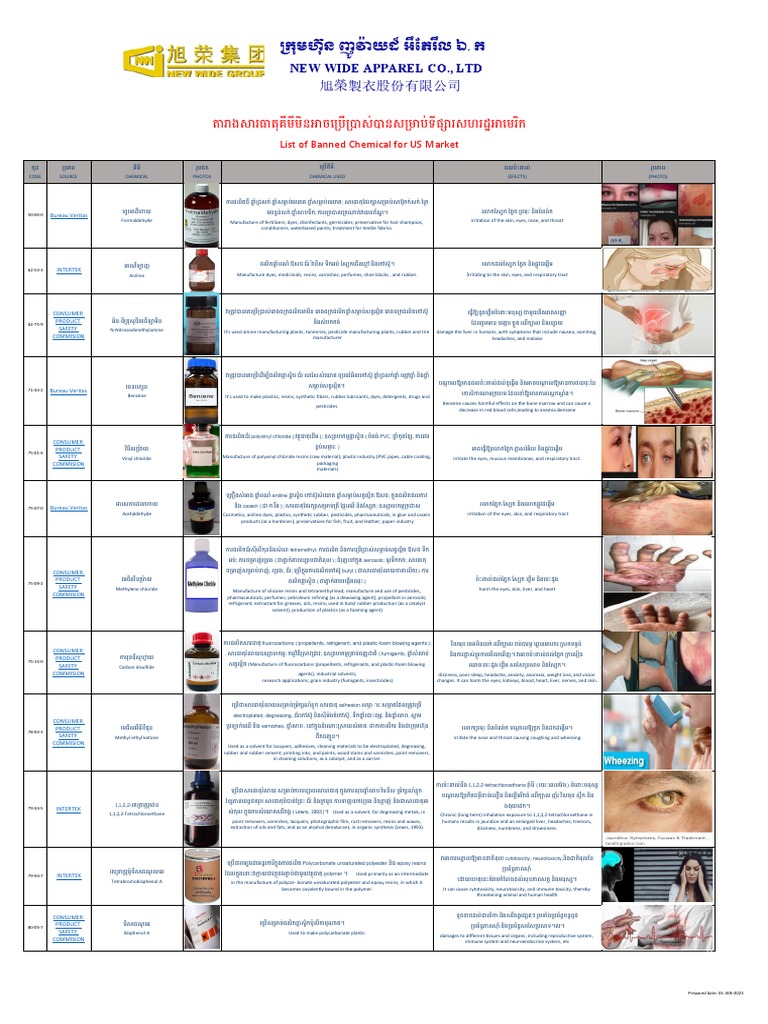EBay And Section 230: Legal Battle Over Banned Chemical Listings

Table of Contents
Understanding Section 230 and its Role in Online Platforms
Section 230 of the Communications Decency Act of 1996 is a cornerstone of internet law in the United States. It provides immunity to online platforms from liability for user-generated content. This means that websites and online marketplaces like eBay aren't held legally responsible for what their users post or sell, provided they don't create the content themselves. Crucially, Section 230 also allows platforms to moderate content, removing material they deem objectionable or illegal, without losing their immunity. This is vital for eBay's ability to remove listings of banned chemicals and other prohibited items.
However, Section 230 is not without its limitations and is facing increasing legal challenges. The "good samaritan" clause within Section 230 specifically encourages platforms to moderate content, offering protection for their efforts to remove harmful material. But, this protection isn't absolute; platforms can lose their immunity if they are deemed to have materially contributed to the creation of the illegal content.
- Explain the "good samaritan" clause within Section 230: This clause protects platforms that actively remove illegal content, even if they were not originally responsible for its presence.
- Discuss the limitations of Section 230 protection: Platforms can lose protection if they are found to have directly contributed to the creation or dissemination of the illegal content, or if they fail to adequately moderate content in a manner consistent with their stated policies.
- Provide examples of successful and unsuccessful Section 230 defenses in similar cases: Cases involving hate speech, copyright infringement, and the spread of misinformation demonstrate the varied interpretations and applications of Section 230. The outcomes often depend on the specific facts of each case and the platform's moderation policies.
eBay's Policies on Banned and Restricted Items
eBay maintains a comprehensive list of banned and restricted items, including various controlled substances and hazardous materials. These policies are designed to ensure compliance with relevant laws and regulations, and to protect buyers and sellers from potential harm. The sale of these restricted chemicals can lead to severe legal penalties. The process for listing restriction and removal involves automated systems scanning listings for prohibited keywords and descriptions, as well as human review by eBay's dedicated moderation teams.
- List examples of specific chemicals commonly banned on eBay: This can include various precursor chemicals used in the production of illegal drugs, highly toxic substances, and other materials subject to strict regulatory controls.
- Detail the appeals process for sellers whose listings are removed: eBay provides sellers with mechanisms to appeal the removal of their listings, often involving the submission of supporting documentation proving compliance with regulations.
- Explain the various warnings and notifications eBay provides to sellers: eBay typically employs a tiered warning system, offering sellers opportunities to correct violations before facing account suspension or permanent bans.
The Legal Arguments in the eBay Case
The legal battle concerning eBay Section 230 banned chemical listings typically involves sellers challenging the removal of their listings, arguing that eBay's actions violate their free speech rights or are arbitrary and capricious. eBay, in turn, defends its actions by citing its responsibility to comply with the law and protect its users. The core of the legal arguments centers on the interpretation and application of Section 230.
- Discuss arguments surrounding free speech versus public safety: The central tension involves the right of sellers to offer their products versus the need to prevent the sale of potentially harmful substances.
- Explain the legal precedent cited by each side: Both sides will draw upon existing legal precedents involving Section 230, online platform liability, and the regulation of hazardous materials.
- Analyze the potential outcomes of the case: The outcomes could range from upholding eBay's right to remove listings under Section 230 to finding eBay liable for restricting sales of otherwise legal chemicals.
Impact on Sellers and the Chemical Industry
The removal of chemical listings from eBay significantly impacts sellers, causing financial losses and potentially disrupting their business operations. For the chemical industry, this raises concerns about access to online sales channels. The broader implications extend to the regulation of e-commerce, prompting debates about the balance between online marketplace responsibility and the rights of sellers.
- Explore alternative sales channels for banned chemicals: Sellers may need to explore alternative platforms or methods to sell their products, possibly facing higher costs and regulatory hurdles.
- Discuss the need for clearer guidelines for sellers of regulated chemicals: This includes calls for more specific and readily available information regarding the legal status of various chemicals and stricter industry self-regulation.
- Analyze the ethical considerations of selling potentially harmful substances online: This necessitates a discussion of responsible sales practices, including verification of buyer legitimacy and ensuring compliance with safety regulations.
Conclusion
The legal battle surrounding eBay Section 230 banned chemical listings highlights the complex interplay between Section 230 immunity, online marketplace responsibility, and the freedom of speech. The case’s outcome will significantly influence how online platforms manage the sale of regulated products and underscores the need for a nuanced understanding of the legal framework governing e-commerce. Staying informed about the ongoing developments in this legal battle and the evolving landscape of online commerce regulation is crucial for both sellers and online marketplaces. Understanding these changes is vital for navigating the complexities of selling regulated products, especially when dealing with eBay Section 230 banned chemical listings.

Featured Posts
-
 Ask Ve Mayis Bu 3 Burc Icin Oezel Bir Ay
May 24, 2025
Ask Ve Mayis Bu 3 Burc Icin Oezel Bir Ay
May 24, 2025 -
 Jymypaukku Muhii Tuukka Taponen F1 Autossa Jo Taenae Vuonna
May 24, 2025
Jymypaukku Muhii Tuukka Taponen F1 Autossa Jo Taenae Vuonna
May 24, 2025 -
 Top 10 Fastest Standard Production Ferraris On Their Home Track
May 24, 2025
Top 10 Fastest Standard Production Ferraris On Their Home Track
May 24, 2025 -
 Apple Stock Q2 Earnings Preview Key Technical Levels To Watch
May 24, 2025
Apple Stock Q2 Earnings Preview Key Technical Levels To Watch
May 24, 2025 -
 Imcd N V Annual General Meeting A Successful Outcome For Shareholders
May 24, 2025
Imcd N V Annual General Meeting A Successful Outcome For Shareholders
May 24, 2025
